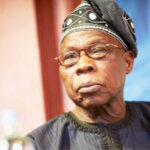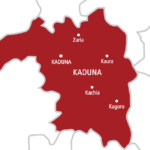MD was again at the fore front of the effort to mobilize resources for the take-off, furnishing and the smooth operations of the new Centre, and even accepted to become its new Chair after the death of Dr. Bala Usman in 2005. Under his capable leadership and selfless generosity, the Centre was able to mobilize resources to initiate the construction of permanent structures on its 4.5ha site at Zangon Shanu along Sokoto Road, Zaria, just a kilometer to the Ahmadu Bello University Main Campus, Samaru. These structures include a 105-room, low-budget, Researchers’ Lodge, built around a library, a multi-purpose hall and an auditorium, with an adjoining block of meeting rooms and offices. The complex also contains an IT-training wing, in addition to a Youth Vocational, Entrepreneurship and Skills Acquisition Unit (YVESAU).
With the obvious advantages which the new facilities would bestow, CEDDERT would be positioned to become a major hub for conferences, workshops, seminars, community capacity building, other training programmes, meetings and retreats. As envisaged in our strategic plan, drawn under MD’s direction, we would also pursue a scholar exchange program with collaborating research institutions as well as provide research facilities to postgraduate students from within and outside Nigeria. The entire project design was predicated on the logic that the Centre’s data resources, research and training programmes, as well as the conference facilities, would ensure a steady flow of patronage for the Lodge, which in turn would generate the funds that could sustain the organisation’s operations. Unfortunately, MD passed away before the project could get to fruition. But the momentum garnered under his leadership is unstoppable and the project’s completion shall be a befitting legacy to his bountiful spirit.
Confronting General Abacha
But our collaboration with MD went beyond the immediate needs of research for democratic, community and national development and the building in our people of the capacity for self-reliance. When, in December, 1997, it became obvious that General Sani Abacha was planning to succeed himself, instead of handing over to a democratically elected government as he had promised, and that the civilian political leadership in the five registered political parties was too scared of the dictator to offer any resistance, MD simply took up the gauntlet and declared he was contesting for the presidency under the banner of the Grassroots Democratic Movement (GDM). We followed MD into the GDM and mobilised all ASCHR and CEDDERT resources into the campaign. In fact, one of CEDDRT’s founding Trustees, Alkasum Abba, was deployed to work at MD’s campaign office as his Political Secretary.
The campaign organized by MD’s team was unprecedented; the political terrain was very difficult because of the determination of the military dictatorship to prevent the holding of political rallies. From Lagos to Akwa Ibom and to Katsina, one rally after the other was approved by the Police and subsequently cancelled. The GDM leadership did not help matters because it openly leaned more towards the military dictatorship than the civilian aspirants in the party. In the circumstances, MD and his team opted for a newspaper campaign strategy. This campaign was so effective that it soon vibrated in households, offices, public places and even on streets where newspapers were sold and read.
When, at the GDM convention, held on Sunday April 19, 1998 at the El-Kanemi Sports Stadium, Maiduguri, it became very clear to Abacha that MD’s challenge was for real and that his campaign had gained momentum across the country, his henchmen, with the collaboration of the party executive, unexpectedly announced that the General was now a candidate, even though he was neither a party member nor had he resigned his commission with the Army. When MD’s campaign team objected to this attempt at imposition, Major Hamza Al-Mustapha, Abacha’s chief bodyguard and the regime’s handler of the GDM, had to take a presidential jet and rush to Fagge Quarters, Kano, to contrive a party membership card for their ‘candidate’.
While Al-Mustapha was away to Kano, and in order to deal with any other unforeseen emergencies, the party executive, on the prodding of Abacha’s men, simply decided to amend the party constitution to allow any interested non-member to be selected as presidential candidate. Even then, they were not sure the assembled elected delegates would play ball. Youth Earnestly Ask for Abacha (YEAA) thugs had to be bussed into the stadium in their hundreds, escorted by armed security personnel, after which the convention chairman, Jim Nwobodo, suddenly announced that the decision whether or not to amend the constitution was going to be by voice vote; All the YEAA thugs shouted ‘’aye’’. As expected, the amendment was passed. Subsequently, the same rented crowd was used to select General Abacha as the Presidential candidate of the GDM. After the convention, it came to be known that the boldness, decisiveness and incisiveness of MD’s campaign strategy and tactics had so irritated and angered the dictator that, according his biographer, Ayo Opadokun, plans were even made to assassinate him in his hotel room during the convention.
More than anything else, the significance of MD’s challenge to General Abacha’s attempt at a disguised continuation of military rule is that, for the first time, Abacha was compelled to show his hands, instead of hiding behind sponsored, shadowy, groups within the security agencies and the political parties, allegedly demanding that he joined the presidential race, as was usually the case with autocratic leaders. By forcing General Abacha to openly come out to declare that he was running for President while still a serving officer with the Army, MD had also triggered a crisis within the military. Many officers were asking, what would become the fate of other officers with similar political inclinations? Indeed, what would become the fate of the core doctrine of the military, which precluded officers and men from both membership of political parties and running for elective offices? The Electoral Commission itself was faced with a legal dilemma, as the electoral laws prohibited serving military officers from contesting for electoral offices.
It is now known that MD’s bold and courageous challenge of General Abacha’s self-succession agenda was one of the major factors that contributed to the de-freezing and opening up of the political space. After the death of Abacha in 1998, it appeared that the transitional military government under General Abdulsalam was predisposed to a two-party system and had even quietly informed some of the major political actors of their determination to support the emergence of General Olusegun Obasanjo as president on the platform of the PDP.
When some top stalwarts of the party approached MD and put pressure on him to join the proposed behemoth, he not only refused but became convinced of the need to re-launch his campaign for the building of democracy. For, it was his deep conviction that democracy in Nigeria could only grow and develop with a true multi -party system, not a two-party system in which one of the parties holds all the aces. That was why, and how, the Movement for Democracy and Justice (MDJ) was born. It was the same deep-seated opposition to authoritarianism that propelled MD to work tirelessly, behind the scene, for the emergence of the APC Alliance in the period 2011-2014. As fate would have it, he died just a few hours after witnessing General Buhari’s victory in the presidential election. May Allah in His infinite mercy grant his generous and pious soul Al-Janna Firdausi, ameen.
Adamu, Mohammed and Abba wrote on behalf of the Trustees, Associates and Staff of CEDDERT& ASCHR.
 Join Daily Trust WhatsApp Community For Quick Access To News and Happenings Around You.
Join Daily Trust WhatsApp Community For Quick Access To News and Happenings Around You.


